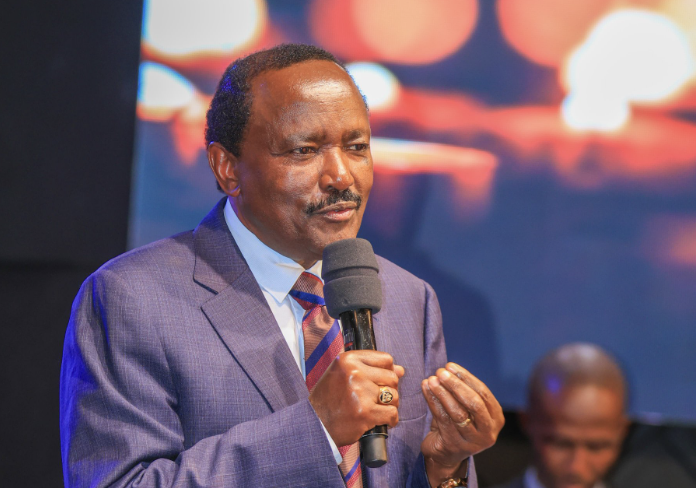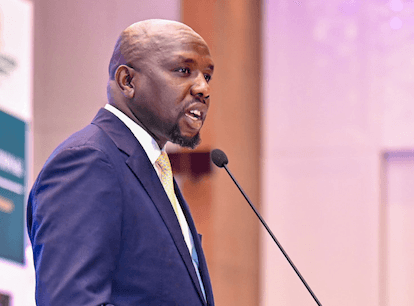
Wiper Party leader Kalonzo Musyoka has come to the defence of the protesters facing terrorism charges, telling the Kahawa Law Courts that the state had overreached by prosecuting peaceful demonstrators under anti-terror laws.
Appearing during the arraignment of the protesters on Tuesday, Kalonzo said the charges do not meet the threshold for terrorism and urged the state to instead pursue a more measured legal approach.
He further criticised the decision by the Office of the Director of Public Prosecutions (ODPP) to charge them with terrorism-related offences over destruction of property during recent protests, warning that such charges risk inflaming an already politically charged population.
“The penalty for terrorism is no less than 30 years. These young people do not belong to any terrorist group. Charging them under such a serious offence serves as a prospect of inflaming Kenyans,” he argued.
He called the move an abuse of prosecutorial powers, suggesting that the ODPP was misusing the legal process to silence dissenting voices.
“The destruction of government offices, even if regrettable, should not fall within the ambit of the Prevention of Terrorism Act,” he added, noting that the Act was never intended to target citizens exercising their constitutional right to protest.
Defence lawyer Ndegwa Njiru echoed Kalonzo’s sentiments, questioning the constitutionality of the charges.
He argued that the alleged offences occurred during demonstrations that had been publicly notified under the Public Order Act.
He invoked Article 37 of the Constitution, which protects the right to assemble and demonstrate peacefully.
“Parliament envisaged limitations only when a right ceases to be justifiable in a free and democratic society,” he said.
The prosecution team defended the decision, saying the destruction targeted key government institutions, including a chief’s office, a court, and subcounty administration offices, among others.
They cited the need to protect public safety and property.
“The charge sheet demonstrates that the evidentiary and
public interest tests were met. The right to prosecute is being exercised with
humility,” they said.



















